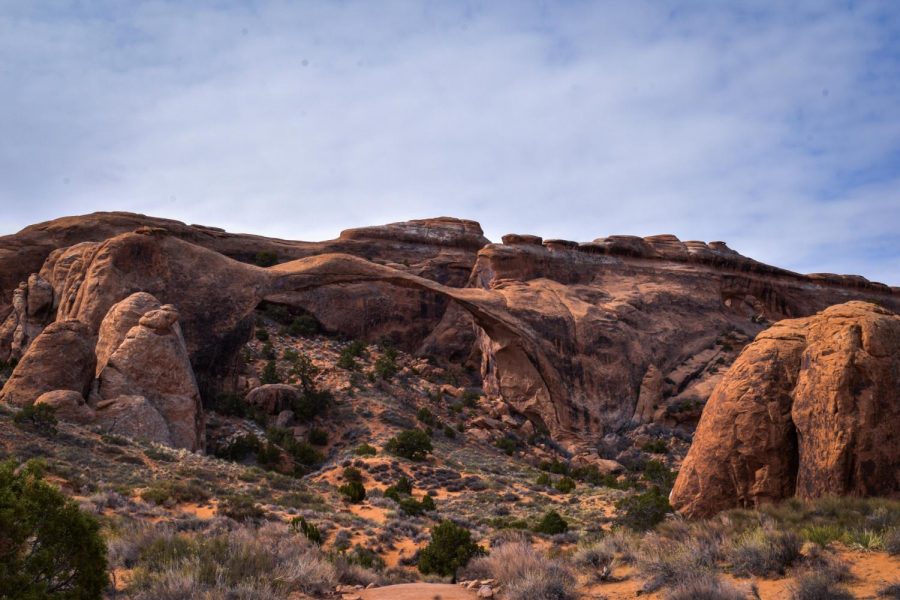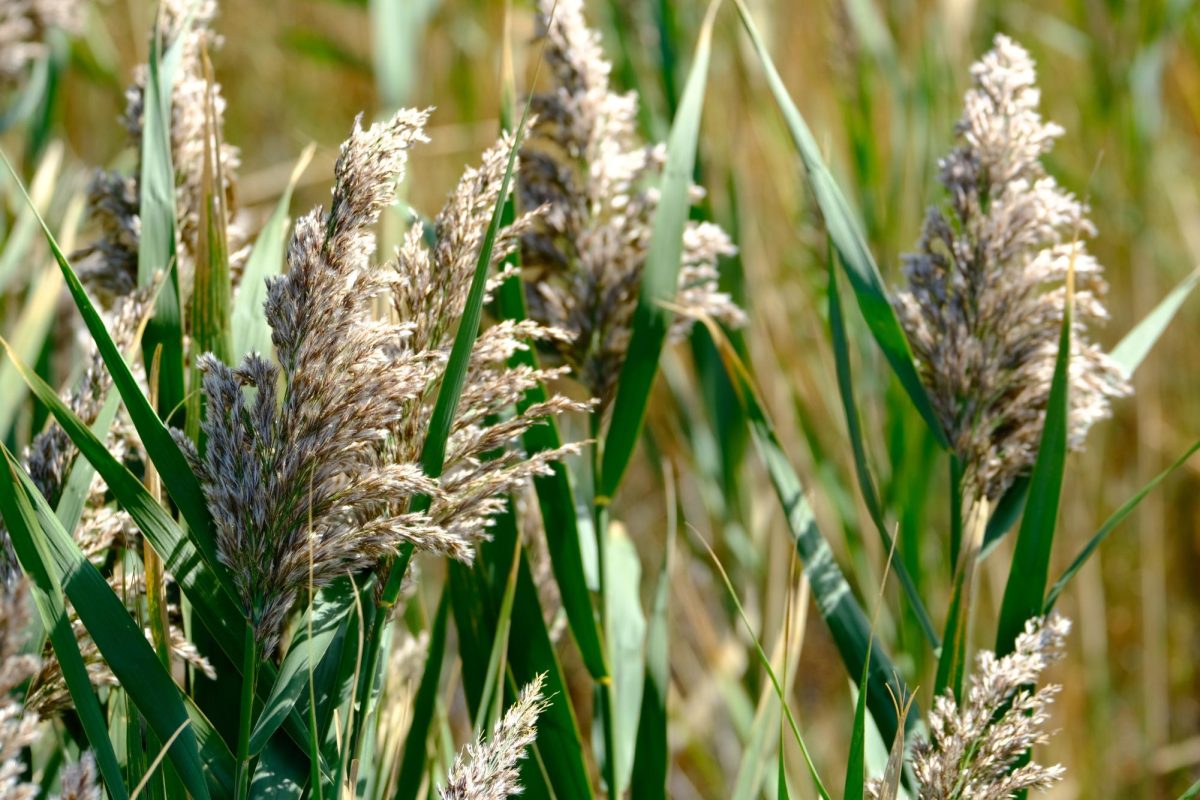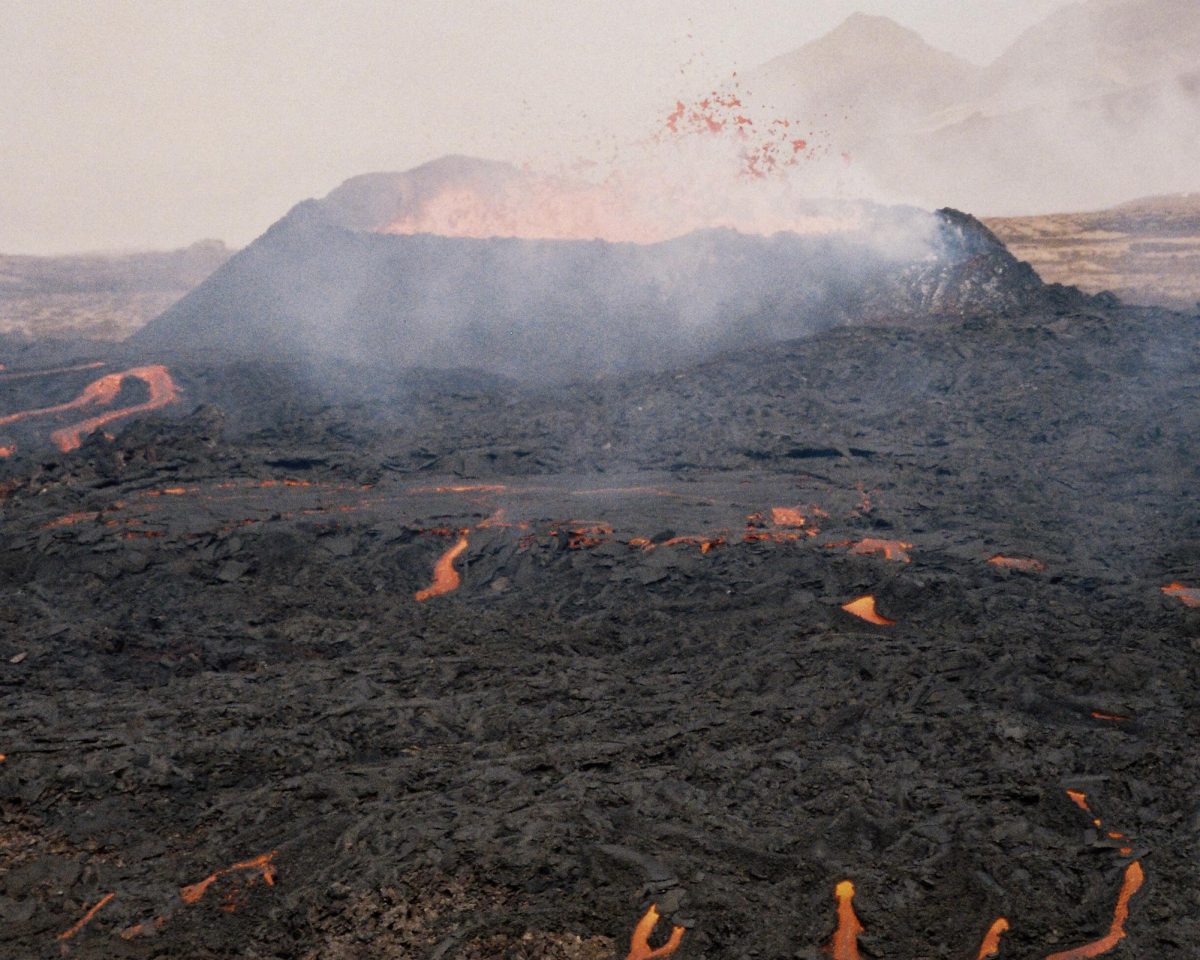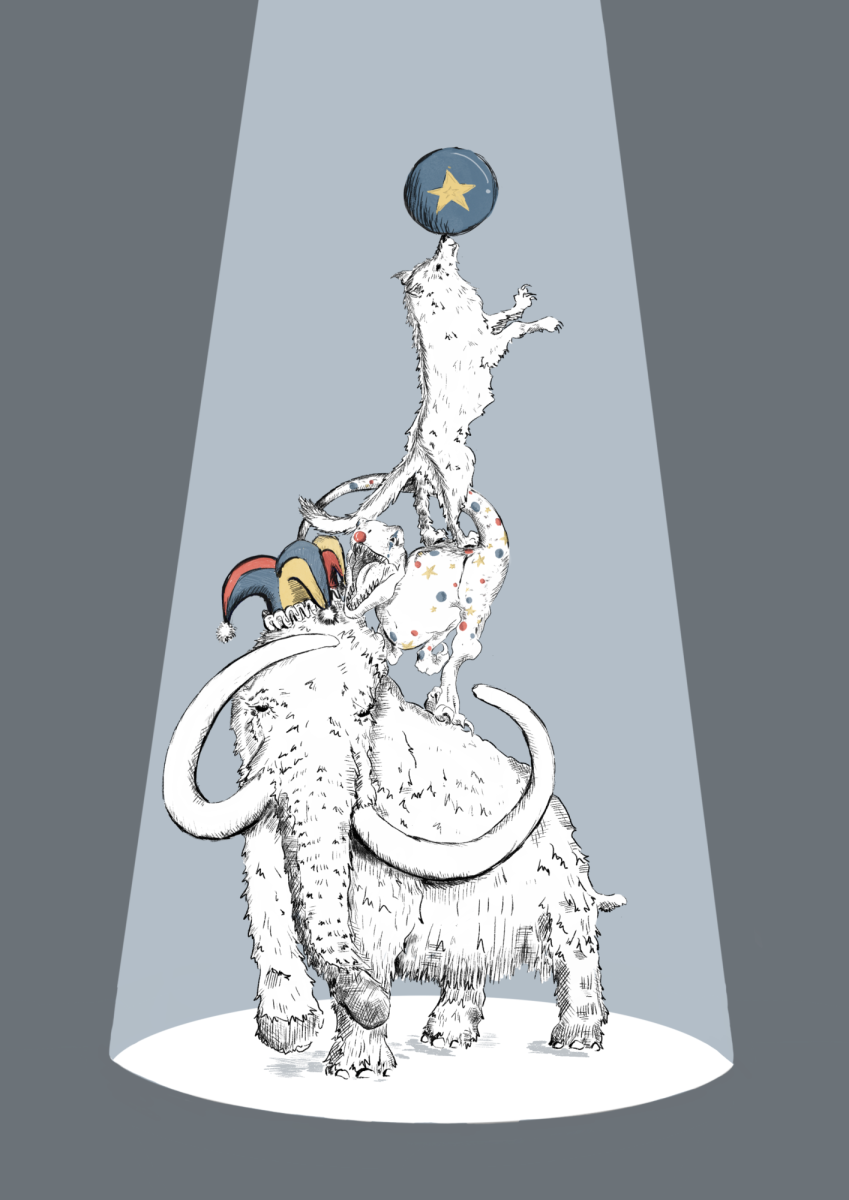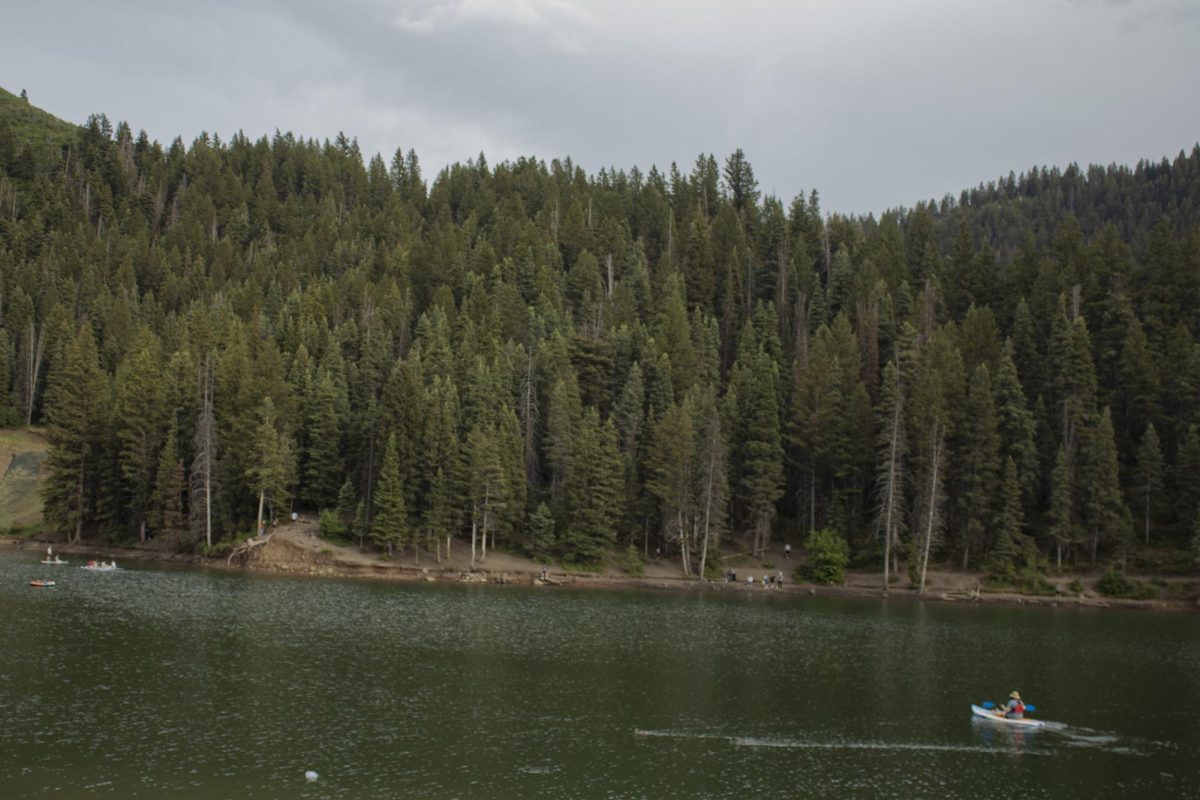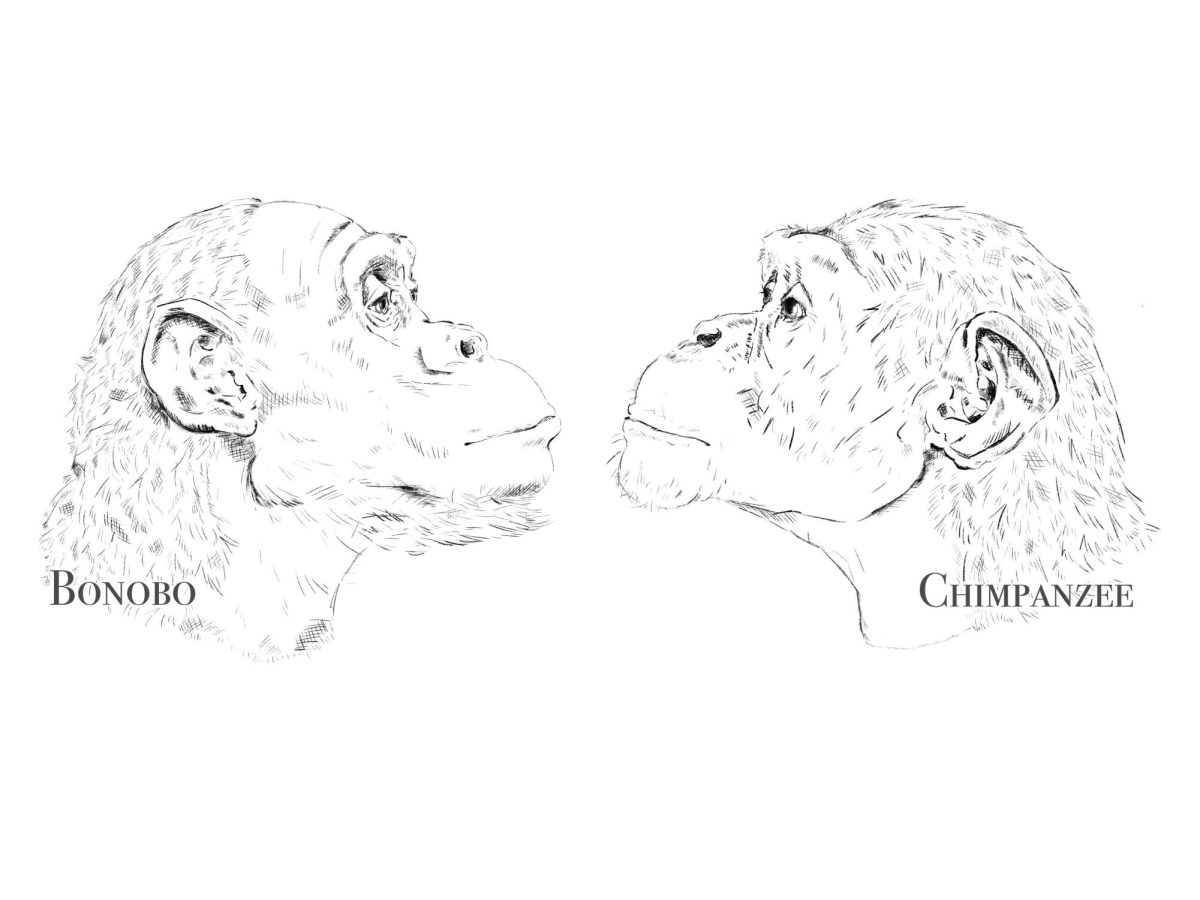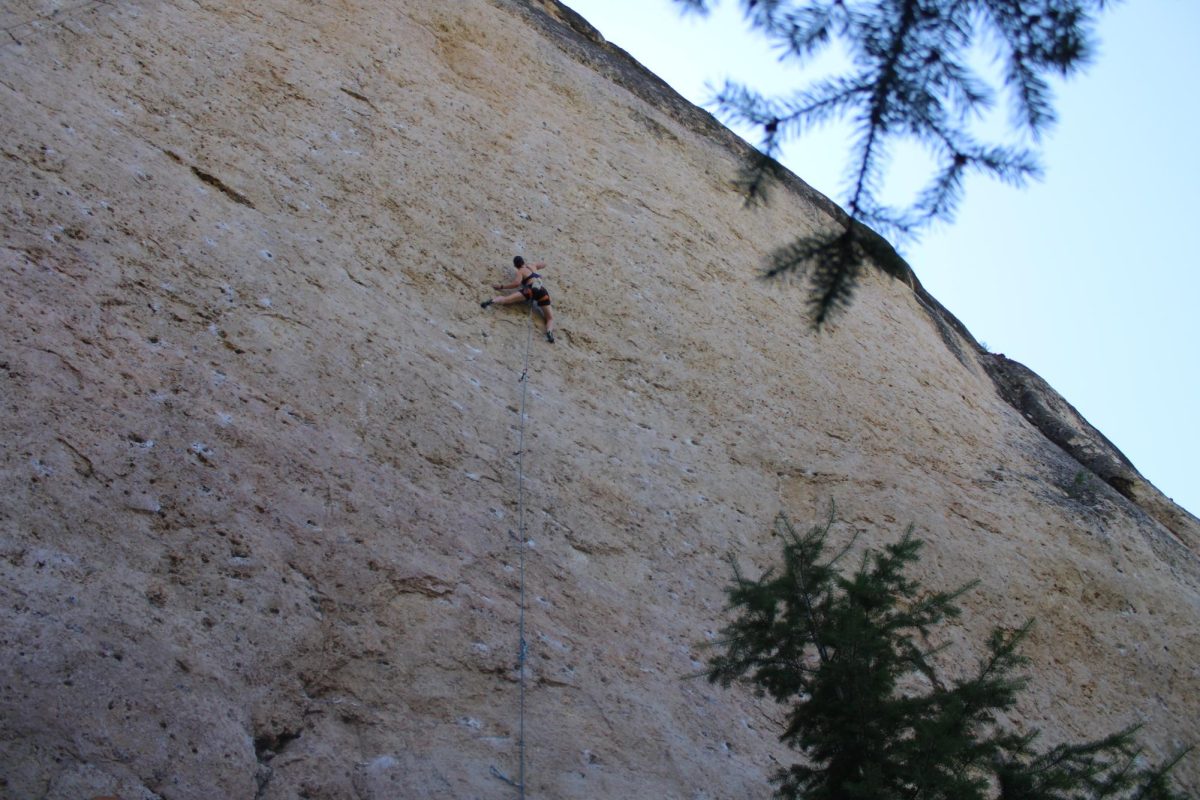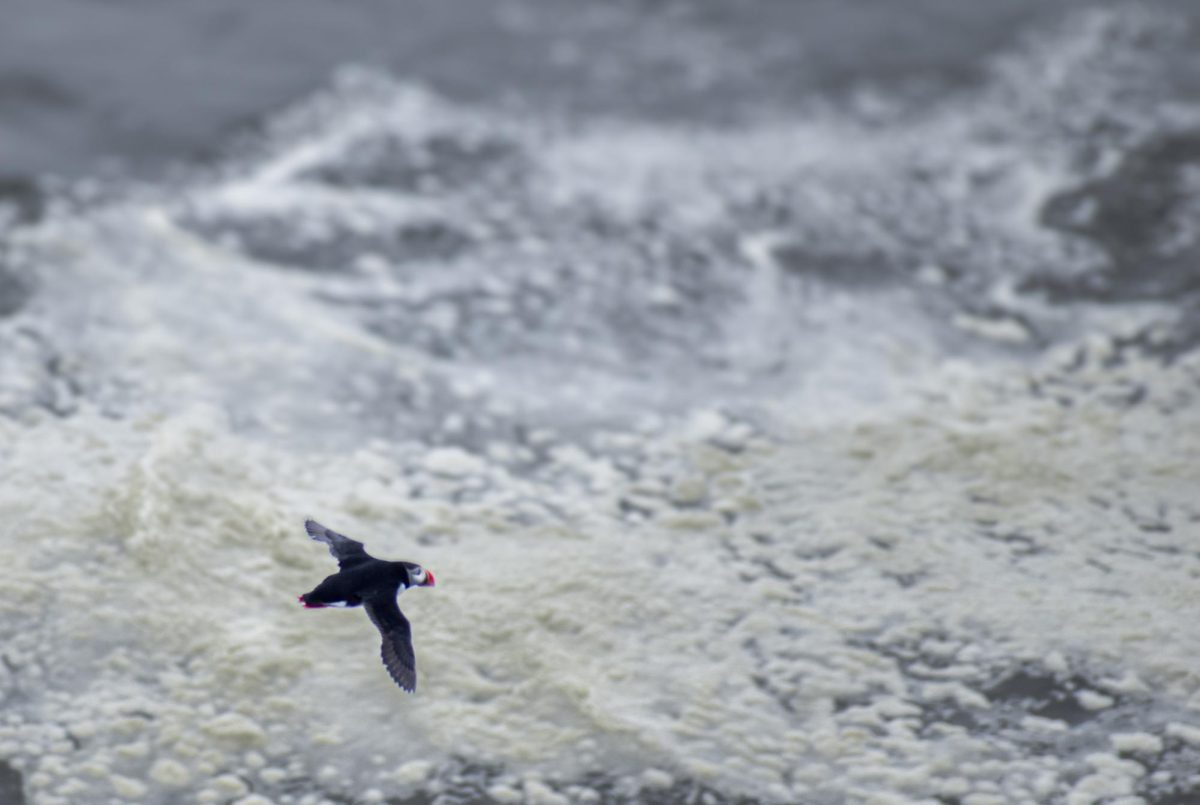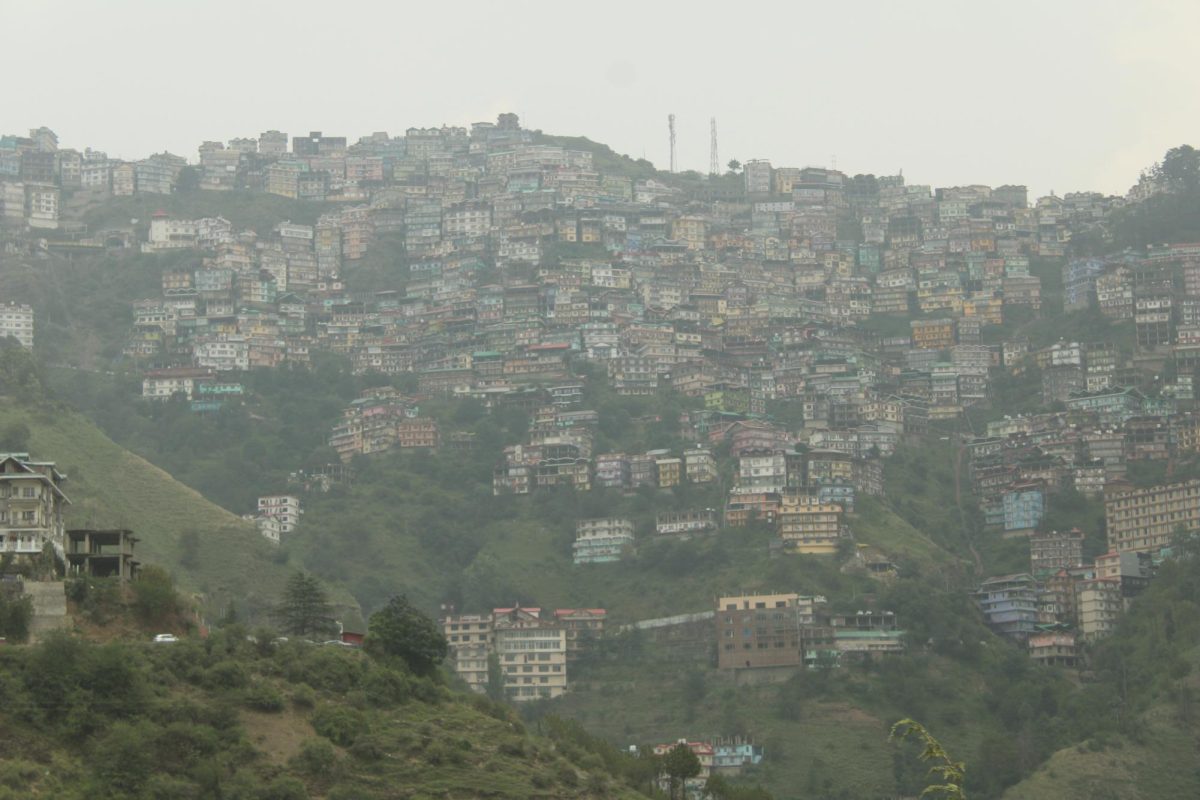Opinion: The Emotional Conflict Behind Privilege and Recreation in Outdoor Spaces
September 12, 2020
This summer, after several months of responsible social distancing, I took trip to McCall, Idaho for a couple days. The thought of going on one trip, which would make me feel like this was a normal summer, was too hard to pass up.
I had been watching the pandemic grow worse and worse as places began to reopen too early. I had been reading more and more stories about police brutality. My eyes were opened to a world of uncertainty where the true incompetence of our government was revealed. I realized that the foundations of racism that our country was built on were rooted far deeper than I had ever imagined.
In the wake of these realizations, the proposition of escaping to a cabin for a few days seemed incredibly appealing. And I did, for those days, forget about the world’s problems. I immersed myself in refreshing lake water, the woody scent of ponderosas which lined the banks and the laughter of kids who were still just having a “college experience.” For a moment, it felt like I was living out the summer I had planned on having. Then, as we were driving back to Salt Lake City, an overwhelming tightness gripped my chest. I remembered that there are so many people financially struggling to survive right now and entire groups of people that can’t forget the injustices which plague them. The privilege that a day ago had made me so happy, now facilitated the guilt that was constricting me.
I view myself as coming from a place of relative privilege. As an Indian, I have dealt with discrimination, but never to the hateful extent that many African Americans and Hispanic people experience. I have never been afraid of the police or worried that I would be reported for walking around a neighborhood. I feel like I’ve been struggling to figure out my place in this transforming world. I believe strongly in equality and the principles of the Black Lives Matter movement, but as a privileged person, I involuntarily benefit from the oppression of many people. I don’t want to exist in this role, but I feel as though I am so entrenched in society that I can’t escape it. My ability to enjoy recreation in the outdoors is a form of my privilege, and this summer, a sense of guilt plagues me after every outdoor excursion. In trying to reconcile these emotions, I feel as though I and others in similar states of privilege have been trapped in a psychological loop these last few months.
Stage 1: Sadness and Helplessness
First, I experience a state of sadness — or perhaps helplessness. I look at the state of our society and see how ineffectual our government has been in regulating the pandemic. I watch most places that reopened now get shut down again because local authorities caved to uneducated demands and allowed places to reopen too early. I witness the increasing state of panic as everyone finds themselves in a more extreme state of uncertainty. In the backdrop of a situation that has no end in sight, I’ve been reading about police brutality against people of color. I’ve learned that racial disparities in our country go farther and deeper than I had ever imagined and our principles of equality and freedom are just a façade. I try to attend protests and sign petitions, but sometimes it just seems like nothing you do can affect any real change.
Stage 2: Ignorance
Next, I dip into the phase of ignorance. This can take many forms. For me, it takes on the form of escapism into the outdoors. The outdoors serve as a place of joy and happiness — a place where I can escape from society and just exist, enveloped by wilderness. The problems of society no longer plague me for the duration of my excursion because, for a brief respite, I no longer exist as a part of society. This is where I’m happiest — floating in the middle of a lake or removed from the world 300 feet up a cliff with only the rock to keep me company. These experiences are the root of why I care about the environment. These pure interactions between myself and the earth have widened my scope of the world to an existence beyond the narrow realm of society. These experiences are so important to me and have become a primary facet of my life. However, every time I return from a trip, I enter the next stage.
Stage 3: Guilt
I recognize that the only reason I am allowed to escape into the outdoors is because of the privilege I have. It’s a privilege to have the financial means to afford my frequent outings and the gear I use and to possess the knowledge I need to safely recreate in the outdoors. It’s even a privilege to be a part of a community of amazing people who share the same passion for nature that I do. The guilt compounds as I realize, once again, that I benefit from a system that oppresses entire races of people. The privilege that has allowed me to live out my most valuable memories stems from a system of subjugation. This realization spirals back into the sadness part of the cycle as I recognize that the outdoor community possesses some of the worst racial disparities. There are so many people of color who have never had the chance to experience the wonders and fulfillment the outdoors can bring.
During the past couple of months, I’ve been struggling to reconcile the guilt I feel over my privilege with my desire to go on trips and immerse myself in experiences that truly make me happy. While I do believe it is important for people in the outdoor community to recognize their privileges, by no means do I believe they need to stop engaging with the outdoors or even feel guilty.
Shifting the Stages:
Stage 1: Self-Care
We can transform feelings of sadness and helplessness into a form of self-care by acknowledging that we need to find a balance between recreation and self-fulfilling activities.
Stage 2: Reflection and Appreciation
When we go on trips, we don’t need to be ignorant of the problems plaguing the world. Rather, we can be aware of our privilege and transform this ignorance into a sense of appreciation for the gifts we get to experience.
Stage 3: Niched Activism
We can turn guilt into something constructive by pushing to reduce the racial disparities in the outdoors. The outdoor community is primarily white, but from what I’ve seen, there have been very few people in the community who view this positively. As someone who comes from an immigrant household, engagement with the outdoors was never a top priority. My parents were never introduced to outdoor activities and therefore had little interest in introducing their kids to these same activities. I was lucky enough to meet friends in high school who taught me skills and introduced me to a myriad of sports in the outdoors. We can all actively push to make the outdoors more inclusive to all people of color in our own small ways. For example, as a trip leader for the University of Utah, I can strive to create trips specifically targeted towards marginalized groups and I can work to make these more affordable for those at an economic disadvantage. I can work to partner with different clubs at the U so that people of color feel a sense of community as they are introduced to the outdoors.
We all have different aspects of our life where we fulfill leadership roles and I urge you all to work to see how you can use your authority to reduce racial disparities in our society. Maybe, with small movements, we can transform access to the outdoors into a right rather than a privilege.


